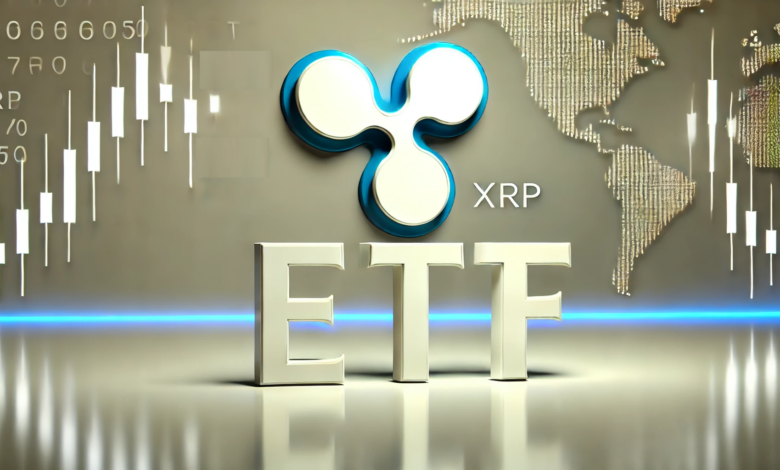
Spotlight on Cboe’s New XRP ETF Filings
In a significant move on Thursday, the Cboe Exchange, headquartered in Chicago, submitted four distinct 19b-4 applications to the US Securities and Exchange Commission (SEC). These filings seek the green light to list and trade spot XRP exchange-traded funds (ETFs) from the firms WisdomTree, Bitwise, 21Shares, and Canary. This development marks a pivotal chapter in the regulatory journey, succeeding the initial S-1 submissions, and could usher XRP into the realm of Bitcoin and Ethereum as a leading crypto asset with ETF status in the US financial landscape.
The Advancement of XRP ETFs
The documents presented by Cboe highlight compelling reasons for the approval of spot XRP ETFs, drawing attention to Ripple Labs’ partial legal victory in July 2023. The court’s decision noted that programmatic sales to retail investors did not equate to investment contracts under federal law—a point currently under appeal. The Cboe asserts in its filings that it “believes it is applying proper legal standards in making a good faith determination that XRP is not under these circumstances a security under federal law.”
These applications align with a wave of enthusiasm around crypto-centric investment products, despite prevailing market challenges. XRP, ranking as the fourth-largest digital asset by market capitalization, experienced a price decline of about 33%, following a peak near its all-time high of just under $3.40 in late January. The formal 19b-4 submissions to the SEC are crucial as they seek authorization for listing and trading on the Cboe BZX Exchange. Upon publication in the Federal Register, the SEC typically has an initial 45-day period to approve, deny, or extend the review of each proposed rule change. However, as Fox Business correspondent Eleanor Terrett noted, the SEC can extend this period—up to a total of 240 days—before reaching a final decision.
In her commentary on the process, Terrett emphasized that “the submission of these forms does not guarantee approval,” underscoring the rigorous regulatory scrutiny involved. Many analysts highlight the SEC’s ongoing appeal against Ripple Labs in the Second Circuit Court, where the agency seeks to overturn the July ruling that differentiated XRP’s programmatic sales from traditional securities offerings.
Voices from the Industry
Ripple CEO Brad Garlinghouse shared a cryptic clock emoji on social media platform X, signaling the beginning of a countdown to a final judgment on the 19b-4 filings. While he offered no further comment, his gesture resonated with XRP enthusiasts who view these ETF applications as a potential turning point for broader acceptance.
Challenges and Innovations in XRP ETF Approval
Unlike Bitcoin and Ethereum, which gained ETF approvals partly due to established futures markets such as CME, XRP does not have a similar CME futures product. This absence is seen as a hurdle for regulatory acceptance. Consequently, asset managers are proposing a series of protective measures to mitigate previous SEC concerns regarding market integrity and investor safeguards.
Rather than sourcing directly from Ripple Labs, issuers plan to acquire the token through various secondary venues. Additionally, the proposals include real-time monitoring systems to identify and prevent manipulative trading activities. XRP holdings would be managed by licensed custodians, typically employing cold storage protocols to minimize counterparty risk. Furthermore, there will be mechanisms to suspend intraday trading during periods of extreme volatility, a feature designed to protect retail investors specifically.
These strategies mirror those used in other crypto ETF filings, such as the recent proposals for Solana ETFs—another initiative from Cboe that was resubmitted following regulatory feedback last year.
As of the latest update, XRP was trading at $2.51.
“`







